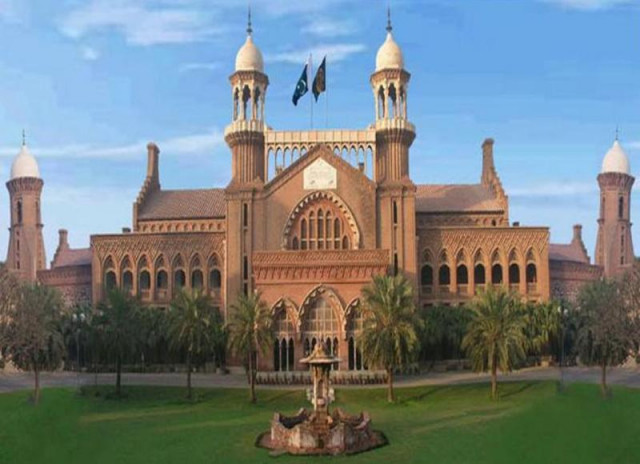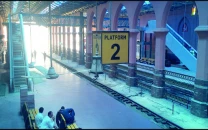Environment rules: LHC wants EPA testing lab made functional
LHC chief justice asks chief secretary to allocate resources for making lab functional in 3 months

On January 28, the LHC had directed the government to suspected construction work in the vicinity of 11 historical sites along the metro train’s route. PHOTO: LHC.GOV.PK
Earlier Advocate Sheraz Zaka had told the court on behalf of the petitioner that the fundamental rights of citizens were at stake due to increasing pollution from industrialisation.
“Lahore is fast becoming one of the most polluted cities of the world,” he said. He said that the EPA had failed to perform its statutory obligations and enforce environmental protection rules. EPA Director General Dr Javed Iqbal appeared before the court and said that it required at least a year for its testing laboratory to become functional.
The chief justice expressed his displeasure and directed that only three months would be allowed to implement environmental laws.
He directed the chief secretary to allocate resources for making the testing laboratory functional in order to enforce anti-pollution rules. He directed the officials to submit a report on October 20.
‘Govt has tried its best to protect heritage sites alone Orange Line route’
The Orange Line Metro Train (OLMT) project is the first of its kind in the country’s history. It will promote public welfare.
These views were expressed by Attorney General of Pakistan Ashtar Ausaf Ali as he concluded his arguments before the Lahore High Court on Tuesday. He said the government had tried its best to follow international standards for protection of historical monuments along the route of the metro train.
The attorney general told the division bench headed by Justice Abid Aziz Sheikh that an advisory committee had studied in depth all matters, including protection of environment and heritage sites, before the execution of the project. He told the court that he had concluded his arguments in the case and was soon leaving for a medical examination abroad.
Shakeelur Rehman, the top law officer of the province, was also present in the courtroom.
Earlier, the petitioners’ counsel, Advocate Azhar Siddique, reiterated that public money was being squandered on what he said was a useless project. He said funds allocated for health and education sectors had been diverted to the project. He said alongside its negative impact on the cultural landscape of the city the project had resulted in degradation of the city’s environment, loss of lives in several accidents at the construction site and monetary loss to businesses relocated from along the route.
Siddique said a stay order issued by the court against construction in the vicinity of heritage sites had been violated. He also said the United Nations Educational, Scientific and Cultural Organisation (UNESCO) and other international organisations had expressed serious reservations over the project’s impact on historical monuments like the Shalimar Gardens.
He would resume his arguments at the next hearing on Wednesday (today).
On January 28, the LHC had directed the government to suspected construction work in the vicinity of 11 historical sites along the metro train’s route. The stay order had been issued in several civil society organisations’ petitions against the project, calling it a threat to the city’s environment and beauty. They said that the project had not been approved by the Provincial Assembly and that funds allocated for other sectors had been diverted to the project.
Published in The Express Tribune, July 13th, 2016.



















COMMENTS
Comments are moderated and generally will be posted if they are on-topic and not abusive.
For more information, please see our Comments FAQ